Pursuing an online masters in economics can help you advance your training and expertise in this lucrative, growing field.

A number of in-demand jobs in this sector, such as economist, also require a masters degree. Some aspiring economists may imagine working in public service or public policy roles. Others may just assume that studying economics is nearly the same as studying business and finance.
Editorial Listing ShortCode:
There are actually many concentrations offered across different economics graduate programs.
Masters in Economics Online Programs
If you didn’t major in economics as an undergraduate, that doesn’t necessarily mean you can’t pursue a graduate degree in the field. Some schools, though, may require you to fulfill some core economic coursework before you can begin your masters program.
Editorial Listing ShortCode:
Economics masters programs typically cover a range of topics, such as:
- Macroeconomics and microeconomics
- Research design methods for economic modeling and forecasting
- Social and market forces that impact large economies
- Economic policymaking and monetary interventions
Professionals with work experience and advanced training in economics might pursue jobs in large banks, consulting roles, or academia. Some work in governmental agencies like the Federal Reserve, the International Monetary Fund, or the World Bank.
Common Economics Masters Concentrations

Most masters programs in economics will require you to choose several elective courses based on the concentrations available. Some common economics masters concentrations include:
- Business and Finance Economics. This concentration prepares students for management and analysis roles that support decision making and strategic investment planning for private-sector enterprises.
- Data Analytics. In this concentration, you can focus on learning advanced quantitative research, modeling, and forecasting methods.
- International Economics. Courses in this concentration address topics such as global finance, international trade and development, international monetary policy, and currency markets. It will likely cover the comparative study of different economic systems as well.
- Labor Economics. In this specialization, you can study economic policy and the labor market, and you’ll likely examine the role of labor and labor markets within larger economic systems.
- Public Policy. This concentration helps you learn about economic policy making, analysis, and research. You’ll typically study competing economic policy perspectives as well.
Concentrations and course offerings will vary by program. You can often find many distinct and intriguing pathways to consider as you compare offerings.
Economics Careers & Salaries
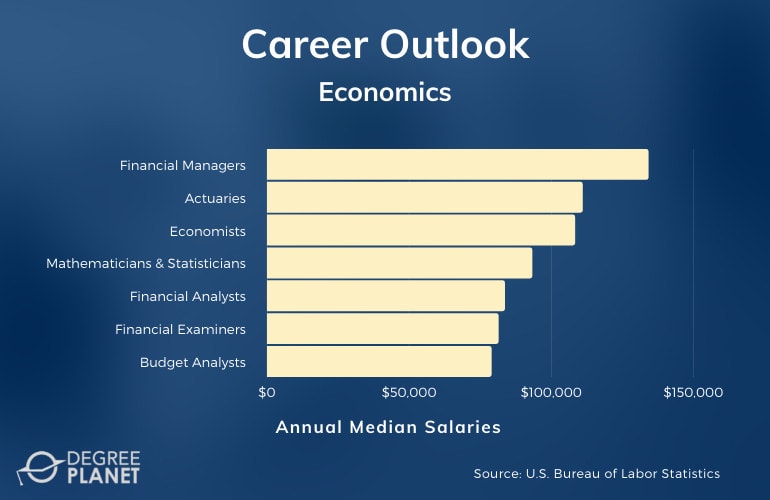
A number of careers in economics require research, analysis, and forecasting skills. Your chosen area of concentration can also help qualify you for different kinds of roles. For example, you can develop specialized expertise in finance and financial management, public policy, or global finance and international development.
According to the Bureau of Labor Statistics, professionals with advanced degrees and experience in economics or related fields may qualify for a number of engaging and lucrative careers.
| Careers | Annual Median Salaries |
| Financial Managers | $134,180 |
| Actuaries | $111,030 |
| Economists | $108,350 |
| Mathematicians and Statisticians | $93,290 |
| Financial Analysts | $83,660 |
| Financial Examiners | $81,430 |
| Budget Analysts | $78,970 |
| Market Research Analysts | $65,810 |
| High School Teachers | $62,870 |
| Survey Researchers | $59,870 |
Qualifications for some of these careers will differ. Getting an online masters degree in economics can be especially beneficial for those interested in mathematical modeling, economic policy issues, financial analysis, or market research.
Editorial Listing ShortCode:
Most economists learn to apply their knowledge and skills to track economic trends, to help inform financial and economic decision making, or to help with complex economic forecasting tasks.
Economics Master’s Curriculum

Courses, areas of concentration, and curriculum designs will vary by school and program, but here are some examples of the types of courses you’ll likely encounter:
- Mathematical Foundations in Economics: This course is a review of mathematical concepts and models used in economics research, modeling, and forecasting.
- Macroeconomics: You’ll study key macroeconomic indicators and policy tools, such as employment rates, inflation, monetary policy, and the dynamics of fiscal crises.
- Microeconomics: This course is an overview of key principles of microeconomic theory and consumer behaviors, including consumer-oriented marketplace dynamics and discrete economic interventions.
- Introduction to Economics Forecasting: This course covers fundamental approaches and modeling techniques for testing hypotheses and forecasting future trends.
- Advanced Economics Forecasting: You’ll learn about advanced topics in econometrics with more complex variables and modeling dynamics.
- Labor Economics: This course covers key principles and theories related to wages, employment, labor incentives, and collective bargaining dynamics.
- Political Economy and Public Policy: You’ll learn about various theories of market economics and related approaches to free market and managed market interventions, taxation policy, and government spending and debt financing.
- Financial Institutions: You’ll study major financial institutions and economic regulations and policy related to corporate management, investment banking, lending, and mortgage markets.
- Comparative Economics: This course is an overview of comparative economic systems, including the study of their development, theoretical principles, and policy tenets.
- Economics Capstone: You’ll apply your skills and knowledge to life-like public policy or forecasting challenges and tasks.
Economics masters programs involve learning advanced mathematical modeling and forecasting skills. You’ll often be required to think analytically about complex theoretical frameworks and to compare critical, political, and ideological perspectives and theories.
How to Become an Economist

Becoming a professional economist typically requires a solid economics foundation coupled with real-world experience:
- Bachelor’s degree. You can start by getting a bachelors in economics or a related field, such as accounting, finance, or mathematics and statistics. You might also consider a dual major, such as economics and finance, or a minor in a complementary field.
- Professional experience. Getting workplace exposure in the field or through internships can help you define your interests and areas of future specialization. You can also learn more practical skills while boosting your credentials before you apply to grad school.
- Master’s degree. Economist positions generally require a masters degree in economics. You can also pursue an MBA in Economics. Some programs require the completion of a master’s thesis, but not all programs do.
- Career-building. With your economics masters degree in hand, you can enhance your skills and qualifications with real, on-the-job learning. Based on your aptitudes and area of concentration, you might focus on private-sector jobs, government roles, the public policy arena, or research and teaching roles.
You can also consider furthering your education to get a PhD in Economics. A doctoral degree could help you qualify for rewarding careers in academia or advanced policy research. Some professionals with doctoral-level training work with agencies like the Federal Reserve, the World Bank, or the International Monetary Fund (IMF).
Admissions Requirements

Admissions criteria will vary by school and program, so it’s strategic to check out requirements for the programs you’re interested in. You can also ask an admissions officer if you need more information.
- GRE or GMAT scores (only some schools require them)
- Bachelor’s degree in economics or a related field
- Prerequisite math courses, as needed
- Minimum GPA, typically a 3.0 or 3.5
- Letters of recommendation
If your bachelor’s degree is in another major, some schools may require you to fulfill prerequisite coursework in specified upper-division courses.
Accreditation

Most credible graduate programs require your bachelor’s degree to be earned from an accredited school. Likewise, regional accreditation is an important factor to consider when looking at economics graduate programs.
By selecting a fully accredited school and program, you can have a better chance of being able to transfer credits if you need to change schools. Earning an accredited masters can also be necessary if you end up applying for additional degrees down the road.
Editorial Listing ShortCode:
Accreditation is also a precondition for some forms of financial aid and professional licensing. The Council on Higher Education Accreditation (CHEA) has more information regarding regional accreditation, including a database of accredited schools.
Financial Aid and Scholarships
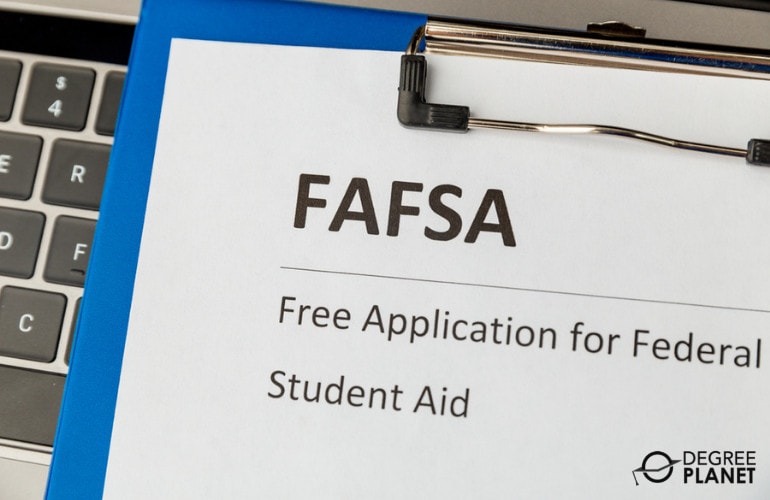
Financial aid has assisted many professionals in moving forward with their educational goals. Need-based forms of aid often include federal and state grants and school-sponsored scholarships. You can also seek out any number of merit-based scholarships.
Financial aid packets can also include student loan options for those who qualify. Terms for loans and aid offers can vary, so it’s beneficial to review all proposals before proceeding. If you anticipate applying for any form of need-based aid, you can start by filling out the Free Application for Federal Student Aid (FAFSA).
Economics Professional Organizations

If you’re pursuing an economics masters degree for professional reasons, you may also want to join one or more of these well-known professional organizations in the field:
- American Economic Association
- American Institute for Economic Research
- National Economic Association
Membership in an economics professional organization can help you keep up to date on relevant news. It can also help you identify useful professional development opportunities and expand your professional network.
Should I Get an MBA or Masters in Economics?
An MA or MS in Economics is especially suitable for students who want to pursue opportunities in economics research, policy work, or academia. Those with business career plans may prefer to opt for a Master of Business Administration (MBA) with a concentration in economics.
| Masters in Economics | MBA in Economics |
|
|
If you’re not sure which pathway is best for you, you may want to research both kinds of programs and compare their course offerings.
What Can You Do with a Masters in Economics?

With a masters in economics, you might qualify to work in the federal government, in public or private research institutes, or in the private sector. Professionals in the private sector commonly work in banks or other finance- and market-related firms.
The Bureau of Labor Statistics expects jobs for economists to increase 14% over the next ten years. Some related careers—such as actuaries, market research analysts, and financial managers—are also forecast to experience above-average job growth.
Depending on their level of training and experience, professionals in the field can also work in secondary or postsecondary teaching or in academic research. Some economics experts even work in large governmental organizations, such as the Federal Reserve, World Bank, or International Monetary Fund.
How Long Does It Take to Get an Online Master’s Degree in Economics?
The requirements for many online economics masters programs generally require 2 years of full-time study to complete. Depending on your school and program, you may be able to finish sooner.
Editorial Listing ShortCode:
If you enroll in an accelerated masters program without a thesis requirement, you may be able to finish in 1 year with full-time, year-round study. If your program requires the completion of a thesis, this can often add some additional time to completion.
What’s the Difference Between an MA vs. MS in Economics?
Taking stock of your aptitudes and interests as well as your career goals can help you determine whether an MS in Economics or an MA in Economics makes the most sense for you.
| Master of Science in Economics | Master of Arts in Economics |
|
|
A Master of Science in Economics program is likely to have more emphasis on quantitative research and modeling, involving more applications of advanced math and statistics.
In an MA in Economics program, there’s likely to be more emphasis on topics related to comparative economic systems, political economy, and economic theory, policy, and history.
What’s the Difference Between a Graduate Certificate vs. Masters in Economics?
Graduate certificates can offer a quicker way to get practical and foundational knowledge in economics without the same time and money commitments required for a master’s degree. Here are some differences between a graduate certificate and a graduate degree program:
| Masters in Economics | Economics Graduate Certificate |
|
|
A graduate certificate program can be beneficial for a business or finance professional who doesn’t need a masters degree but wants to further their knowledge and skill sets in economics.
What’s the Difference Between a Masters in Economics vs. Finance?
If you want to work in roles directly related to accounting, managing, and analyzing business-related investments, a masters in finance can be an alternative to a masters in economics.
| Masters in Economics | Masters in Finance |
|
|
An econ masters with a concentration in finance and business might be fairly similar to a masters in finance. Many other econ concentrations, though, can lead to quite distinct career pathways when compared to a masters in finance.
Is a Masters in Economics Worth It?

Yes, a masters in economics is worth it for many professionals. This kind of degree can open doors to advanced opportunities in economics and related fields. There are a variety of roles in numerous sectors that involve economic forecasting or economic policy design and analysis.
The Bureau of Labor Statistics projects 14% job growth for economists over the next ten years. Meanwhile, math occupations are expected to grow 27%, business and financial jobs are projected to grow 5%, and financial manager positions are expected to grow 15%.
Editorial Listing ShortCode:
Other related careers that are projected to experience robust growth include actuary, mathematician and statistician, and market research analyst (Bureau of Labor Statistics).
Universities Offering Online Masters in Economics Degree Programs
Methodology: The following school list is in alphabetical order. To be included, a college or university must be regionally accredited and offer degree programs online or in a hybrid format.

American University offers an online program for a Master of Arts in Applied Economics. The program is designed to last for 20 months, with each class being 8 weeks long. A final capstone project is required to graduate. To be eligible for the program, applicants must have completed a bachelor’s degree and a Calculus 1 course.
American University is accredited by the Middle States Association of Colleges and Secondary Schools.
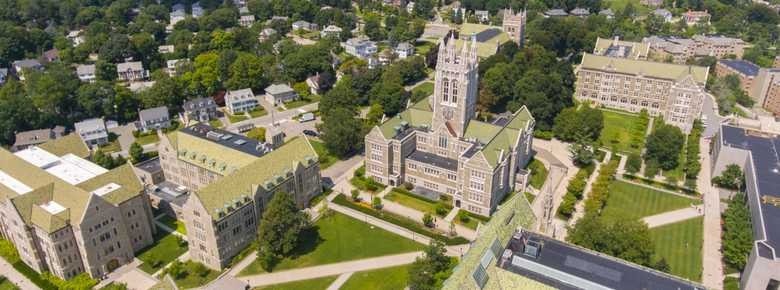
Boston College offers an online program for a Master of Science in Applied Economics. To graduate, students must complete 10 courses, with 5 classes open to related electives.
Those interested in the program must have a bachelor’s degree with a GPA of 3.0 or higher, 2 letters of recommendation, and a resume. GRE or GMAT scores are optional but encouraged by the school.
Boston College is accredited by the New England Commission of Higher Education.

The California University of Pennsylvania offers a Master of Business Administration with a concentration in Applied Economics. The program consists of 36 credit hours that can be completed online. Applicants must have an undergraduate GPA of 3.0 or higher and need to submit official transcripts from all undergraduate institutions attended.
The California University of Pennsylvania is accredited by the Middle States Commission on Higher Education.

Colorado Christian University offers an online program for a Master of Science in Economics. To graduate, students must complete 30 credit hours. Each course is either 5 or 7 weeks long, and students take one class at a time. Applicants must have an undergraduate GPA of 2.5 or higher to be eligible for the program.
Colorado Christian University is accredited by the Higher Learning Commission.

George Mason University offers a Master of Arts in Economics. The program consists of 10 classes and a capstone project.
Applicants must submit official transcripts, a personal statement, a resume, and 2 letters of recommendation when applying. A degree in economics is not required, but classes in microeconomics, macroeconomics, calculus, and statistics are recommended by the program.
George Mason University is accredited by the Southern Association of Colleges and Schools Commission on Colleges.

Georgia Southern University offers a Master of Science in Applied Economics. The online program can typically be completed in 2 years and requires students to complete 10 courses to graduate. Those interested in the program must have a bachelor’s degree with a minimum GPA of 3.0 and competitive GRE scores.
Georgia Southern University is accredited by the Southern Association of Colleges and Schools Commission on Colleges.

John Hopkins University offers a Master of Science in Applied Economics. The program requires the completion of 10 courses to graduate and can potentially be completed in as little as 12 months.
Applicants must have an undergraduate degree with a minimum GPA of 3.0 and must have received a grade of B or higher in Microeconomics, Macroeconomics, and Calculus.
Johns Hopkins University is accredited by the Middle States Commission on Higher Education.

Liberty University offers a Master of Business Administration with a focus on Economics. The program requires students to complete 45 credit hours to graduate. All classes are offered online and are 8 weeks long. Applicants must have an undergraduate degree and a minimum GPA of 3.0.
Liberty University is accredited by the Southern Association of Colleges and Schools Commission on Colleges.

Murray State University offers an online program for a Master of Science in Economic Development. Classes are 7.5 weeks long, allowing students to potentially finish the program in 12 months. Applicants must have a minimum undergraduate GPA of 2.75, a GMAT score of 450, or a GRE score of 289.
Murray State University is accredited by the Southern Association of Colleges and Schools Commission on Colleges.
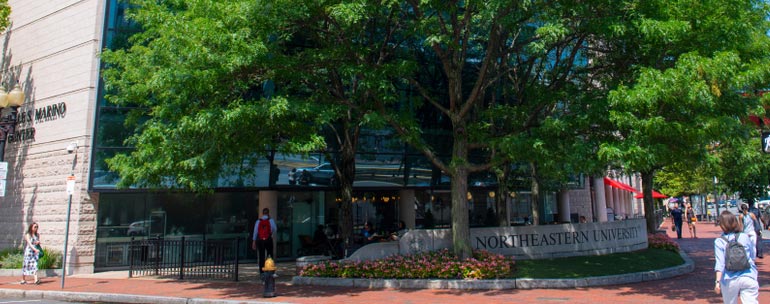
Northeastern University offers an online program for a Master’s in Commerce and Economic Development. Students may add one of 5 concentrations to their degree. To graduate, a final capstone project must be completed. Applicants must apply online with a statement of purpose, 2 letters of recommendation, and official transcripts.
Northeastern University is accredited by the New England Commission of Higher Education.
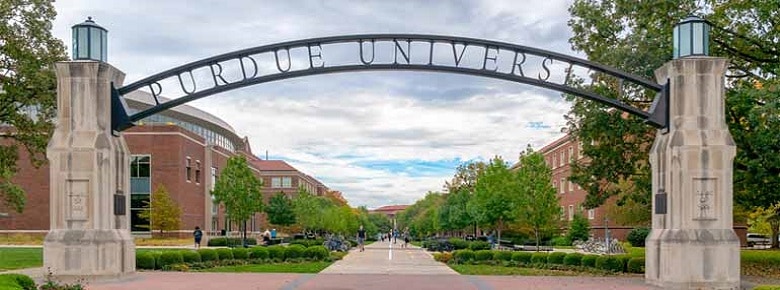
Purdue University offers an online program for a Master of Science in Economics.
The program allows students to add specializations in Business and Data Analytics, Financial Economics, Public Economics and Policy, and Advanced Theory. Students need 30 credits to graduate. Applicants must submit a personal essay, 2 letters of recommendation, GMAT or GRE scores, transcripts, and a video essay.
Purdue University is accredited by The Higher Learning Commission of the North Central Association of Colleges and Schools.

South Dakota State University offers a Master of Science in Economics. Students may decide whether to complete a thesis or a final paper to graduate. Those interested in the program must have a minimum undergraduate GPA of 3.0. When applying, applicants must submit official transcripts, 2 letters of reference, and a letter of intent.
South Dakota State University is accredited by the Higher Learning Commission.
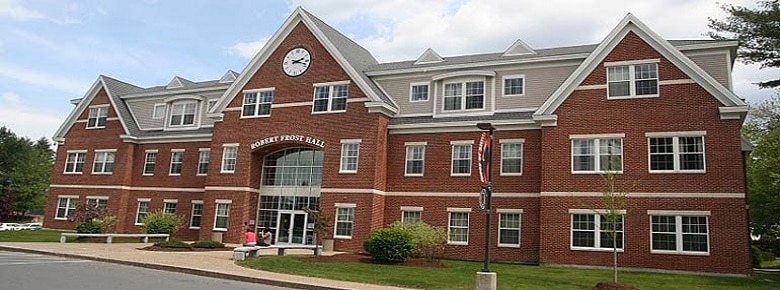
Southern New Hampshire University offers an online Master of Science in Applied Economics. To graduate, students must complete 36 credit hours, including a capstone project. Those interested in the program must have an undergraduate GPA of 2.75 or higher. The school offers rolling admission year round.
Southern New Hampshire University is accredited by the New England Commission of Higher Education.

The University of Detroit Mercy offers an online Master of Arts in Economics program. Students must complete 30 credit hours to graduate. To be eligible for the program, applicants must have an undergraduate degree in economics or business administration with a GPA of 3.0 or higher.
The University of Detroit Mercy is accredited by the Higher Learning Commission.

The University of Missouri offers an online program for a Master of Arts in Economics. The program requires 30 credit hours to graduate and can typically be completed in 2 years. Those interested in the program must have a bachelor’s degree with a GPA of 3.0 or higher in the last 60 credit hours of the degree.
The University of Missouri is accredited by the Higher Learning Commission.

The University of North Carolina—Greensboro offers a Master of Art in Applied Economics.
Students may choose to the full-time, part-time, or MA Doctoral track, which allows students to work toward a doctorate at the same time as their master’s. Applicants must have an undergraduate degree in any field and either a minimum GPA of 3.0 or acceptable GMAT or GRE scores.
The UNC Greensboro is accredited by the Southern Association of Colleges and Schools Commission on Colleges.
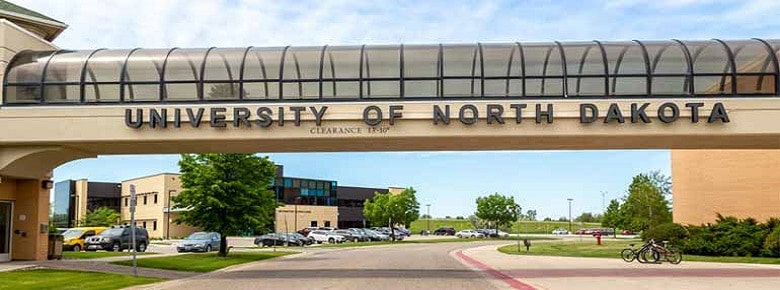
The University of North Dakota offers a Master of Science in Applied Economics. The program requires 30 credit hours to graduate and can typically be completed online in 2 years. Applicants must submit official transcripts, a statement of intent, 3 references from academic or professional sources, and GRE test scores.
The University of North Dakota is accredited by the Higher Learning Commission of the North Central Association of Colleges and Schools.

West Texas A&M University offers a Master of Science in Finance and Economics. The online degree requires students to complete a minimum of 36 credit hours and to pass a comprehensive exam to graduate. Applicants must have an undergraduate GPA of 3.0 or higher, 3 letters of recommendation, and a statement of goals.
West Texas A&M University is accredited by the Southern Association of Colleges and Schools Commission on Colleges.

West Virginia University offers a Master of Science in Economics. The program consists of 10 online courses that can potentially be completed within a year. Those interested in the program must complete an online application and submit a letter of recommendation and official transcripts from an undergraduate degree program.
West Virginia University is accredited by the Higher Learning Commission.

Youngstown State University offers an online Master of Arts in Financial Economics program. To graduate, students must obtain 33 credit hours with a GPA of 3.0 or higher. To be eligible for the program, applicants must have an undergraduate degree with at least one course in microeconomics, macroeconomics, statistics, and calculus.
Youngstown State University is accredited by the Higher Learning Commission.
Getting Your Master’s Degree in Economics Online

If economics is a field that aligns with your interests, professional aspirations, and intellectual aptitudes, you might consider developing your expertise with an online masters degree in economics.
Economics degree programs online can often enable you to earn your degree according to your own schedule. An economics masters degree can open the door to advanced training and responsibility in the field. Most economist positions even require a graduate degree to qualify.
Some economists can help make informed decisions about interventions and policies that may be consequential for nations, for markets, and for everyday workers, business owners, and consumers.
Getting your economics masters degree online from an accredited school may be your next step toward advancing your expertise and qualifications in this growing field.

